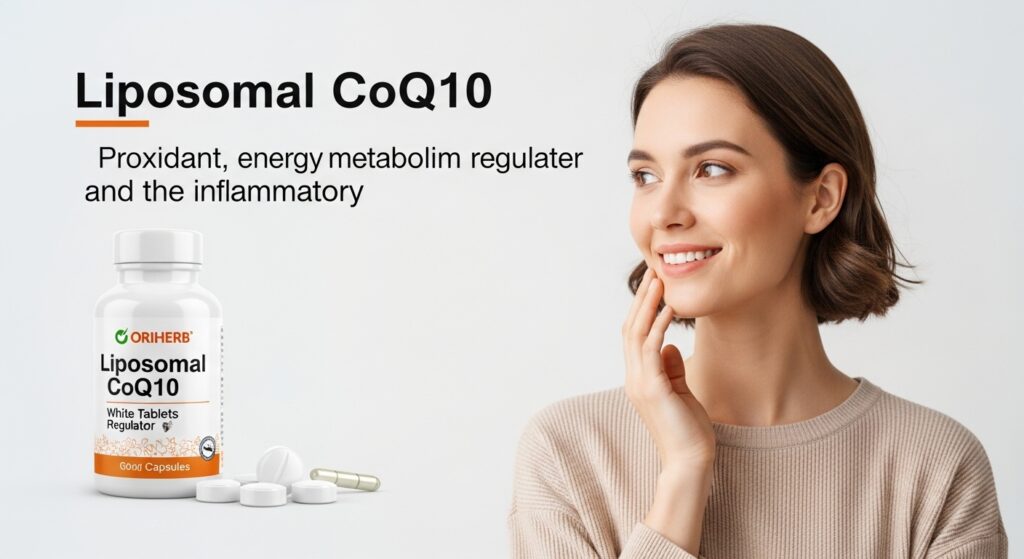Introduction: Why CoQ10 Matters But Often Disappoints in Supplements
Coenzyme Q10 (CoQ10) is a vital nutrient found in every cell of the human body. It plays a crucial role in mitochondrial energy production and functions as a potent antioxidant, supporting cardiovascular health, cognitive performance, and cellular energy. Despite its importance, conventional CoQ10 supplements often fail to deliver results due to poor bioavailability.
Why Traditional CoQ10 Supplements Fall Short
1. Fat-Soluble Nature
CoQ10 is highly lipophilic, which means it does not dissolve well in water-based environments like the digestive tract. This poor solubility significantly hinders its absorption when taken orally.
2. Low Absorption Rate
Clinical studies show that only 2–4% of standard CoQ10 doses are absorbed into the bloodstream [1]. This is largely due to its crystalline structure and poor intestinal permeability.
3. First-Pass Metabolism
Even when CoQ10 is absorbed, it undergoes extensive first-pass metabolism in the liver, reducing the quantity of bioactive CoQ10 that enters systemic circulation.
Liposomal Technology: Transforming CoQ10 Absorption
1. Enhanced Solubility via Phospholipid Encapsulation
Liposomal delivery involves encapsulating CoQ10 within tiny phospholipid vesicles. These vesicles mimic cell membranes, allowing CoQ10 to remain stable and soluble in the aqueous environment of the GI tract.
2. Bypassing Intestinal Barriers
Liposomal CoQ10 can be absorbed through multiple mechanisms, including fusion with enterocyte membranes and endocytosis. This helps the nutrient bypass common barriers and deliver more CoQ10 into the bloodstream.
3. Improved Systemic Circulation
Liposomal encapsulation reduces degradation and provides a slow-release profile that maintains CoQ10 levels in the blood for longer periods.

Scientific Evidence Supporting Liposomal CoQ10
- A double-blind study published in Nutrition (2016) demonstrated that liposomal CoQ10 increased plasma CoQ10 levels by 6 times compared to conventional forms [2].
- In vitro dissolution studies show that liposomal CoQ10 maintains its structural integrity in simulated gastric and intestinal fluids for over 3 hours.
- Animal trials have confirmed greater mitochondrial uptake of liposomal CoQ10 compared to unencapsulated forms.
Business and Consumer Implications
1. Competitive Edge for Supplement Brands
Liposomal CoQ10 allows companies to offer premium, clinically-supported antioxidant formulations with better performance metrics. This positions products as both effective and innovative.
2. B2B Advantages
Raw material suppliers and contract manufacturers can leverage liposomal CoQ10 for:
- Higher product differentiation
- Premium pricing and margins
- Expanded application in functional beverages and capsules
📎 Related Reading:
- Is Resveratrol Too Fragile for the Gut? How Liposomal Technology Preserves Its Potency
- Why Reduced Glutathione Needs Liposomal Delivery: The Key to Stability and Efficiency
- Understanding the Absorption Pathways of Oral Liposomes
Conclusion: A New Era for CoQ10 Supplements
The clinical inefficacy of standard CoQ10 has long hindered its potential. Liposomal technology changes the equation—ensuring higher bioavailability, better absorption, and enhanced physiological performance. For both supplement developers and consumers, liposomal CoQ10 is a game-changer in energy and antioxidant support.
References
[1] Miles, M. V. (2007). “Bioavailability of Coenzyme Q10.” Mitochondrion, 7 Suppl, S66–S71.
[2] López-Lluch, G. et al. (2016). “Bioavailability of coenzyme Q10 supplements depends on carrier lipids and solubilization.” Nutrition, 32(9), 1011-1017.